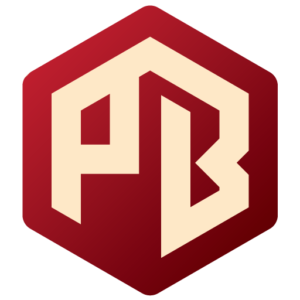
The Oxford Dictionary defines power ballad thusly:
“A slow, soft, rock song, with a strong, emotional vocal delivery and often grandiose production.”
Author Timothy D. Minneci asks in his book Power Ballad (A Definitive Guide to Hard Rock’s Softer Side Volume One), “Can you slow dance to it? Would you wave a lighter back and forth when it’s played in concert?”
A list by the BBC points to the importance of a buildup and key changes while dismissing the need for danceability, “Power ballads aren’t about breaking out the moves. Concentrate on singing your heart out. Some air drumming may also come in handy.”
As one can see, we can get lost in the minutia when deciding what we can or cannot consider a power ballad. One doesn’t require a solid grounding in musical theory to decide what makes that song a power ballad. To me, it’s about vulnerability. Does the song catch you off guard by punching you in the feelz? Do gut wrenching emotions surface? Do warm fuzzies warm the cockles of your cold, black, leather-coated heart?
Many definitions of what is required to deem a song a power ballad makes me recall the scene in Dead Poets Society where Robin Williams’ character John Keating bemoans the rigid methodology of the Pritchard Scale. We’re told that understanding the beauty of a poem requires fluency in its “meter, rhyme, and figures of speech.”
Huh?

Do we dissect each song, asking ourselves how artfully has the objective of the song been rendered and the importance of said objective? Do we rate a damn good tune’s importance or perfection, and in doing so creating our own Pritchard Scale of the Power Ballad? As Mr. Keating exclaimed, “Excrement!”
But, surely there HAS to be some criteria. So, this required me to begrudgingly create a “Pritchard Scale” of sorts for Power Ballads:
- Artist – Did a rocker sing it? Did the album covers feature flames, skulls, leather, scantily clad women? Was the hair taller than that of most of the band member’s supermodel girlfriends? Celine Dion or Bonnie Tyler may sing some pretty awesome songs … but I’m primarily focused on the 80’s Hairband, AOR or Glam power ballad.
- Decade – Was it made post-1980? This is my list, so I typically stick to anything post 1980. Boston released “More Than a Feeling) in 1976 and Styx released “Babe” in 1979, so I grandfather these and a few late 70s tunes into my list. Hey, according to my list, 1991 boasts the most power ballads of any year.
- Fluff – Does the song have slower time signatures? I’m not saying it has to be as mellow as “More Than Words” by Extreme. Consider “Fade to Black” by Metallica, which starts off with a lilting guitar intro only to crush your skull in around 3 minutes and 20 seconds in. While this is a counterbalance to #5, the two can (or not) coexist.
- Sincerity – Do the lyrics invoke an emotional response? Sorrow? Longing? Regret? Pain? Does it poke a bony finger at your closely guarded vulnerabilities? Do past loves surface in your subconscious? Do eyes become misty or does that lump in your throat become impossible to ignore? Does the subject matter come across as genuine, or unintentionally trite and disingenuous?
- Power – Does the song move from a soothing, lilting rhythm to a blistering, guitar-laden, bombastic free-for-all? This is usually a bone of contention amongst fans of the Power Ballad. Songs like “Love is on the Way” by Saigon Kick lacks that kick ass power surge, but in my mind I consider it a power ballad in that its tempo and lyrical content Combined with the previous points, the song makes the cut.
So what gives? You may be thinking “Some of these criteria cancel each other out,” and you’d be correct. The songs on my list meet at least 3 out of these 5 criteria.
“Something to Believe In” was released in 1990 (#2), sang by Poison (#1), has no power surge (#5) but nails #4. “Dream On” was released in 1973 (too early for #2), sang by Aerosmith (#1), swells in power (#5) and yet is slow enough to meet #3. The scale is fluid. Yielding. Forgiving. Kinda irrelevant. But, alas, it exists.
Are there any songs on my list that don’t meet at least 3 of my 5 criteria? You let me know.

Nice! I like the non-linear criteria!
Here’s a couple not on your list from an albumnove been listening to recently (singer from Loud & Clear and Rock Sugar)
Jess Harnell – Just Be You
Jess Harnell – That’s What A Brother Is For
Two great suggestions! I’ve added them. Thanks so much!!!
Y & T “Don’t be Afraid of the Dark”
What a great tune! Thanks so much, i’ve added it to the list!